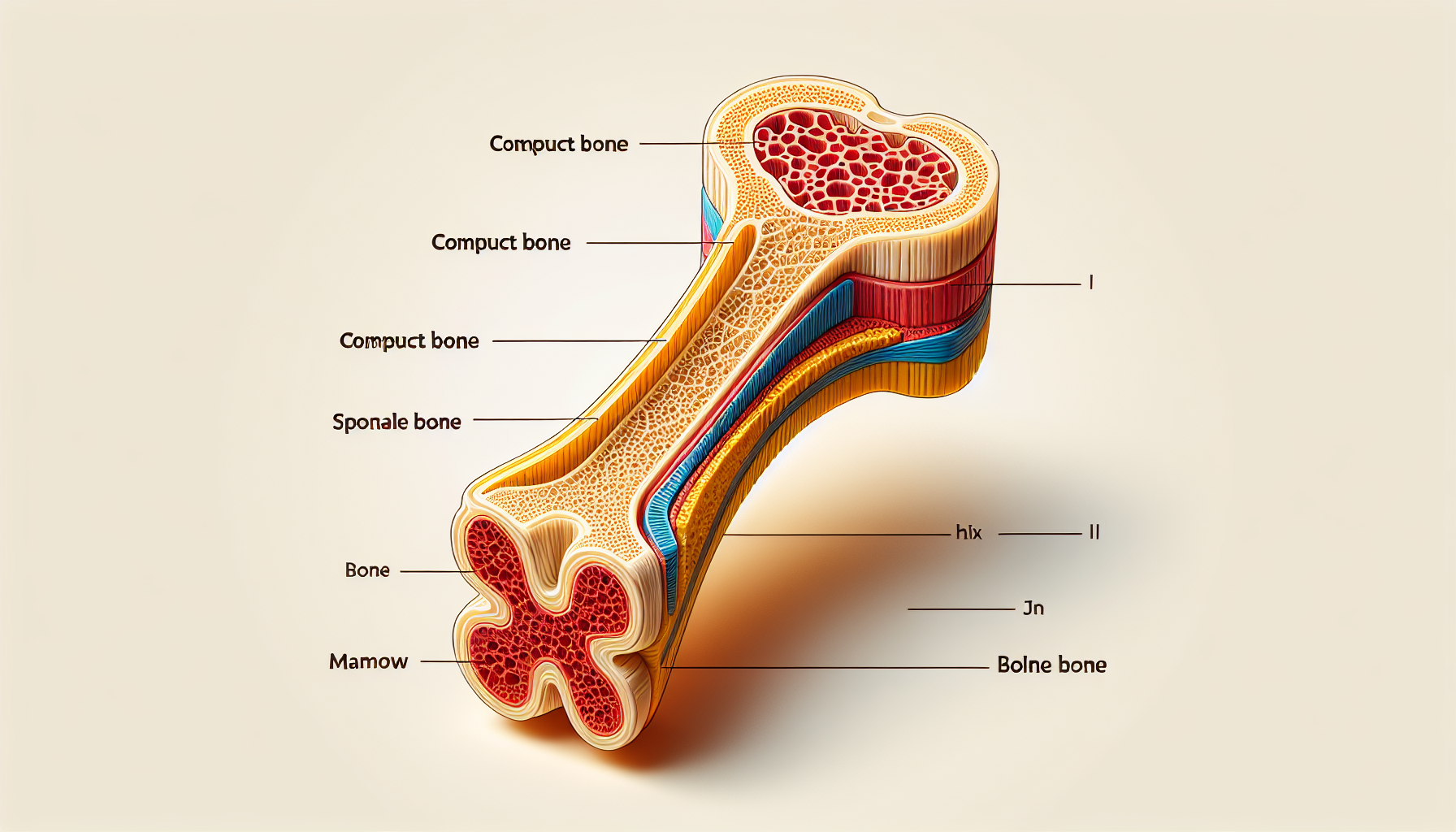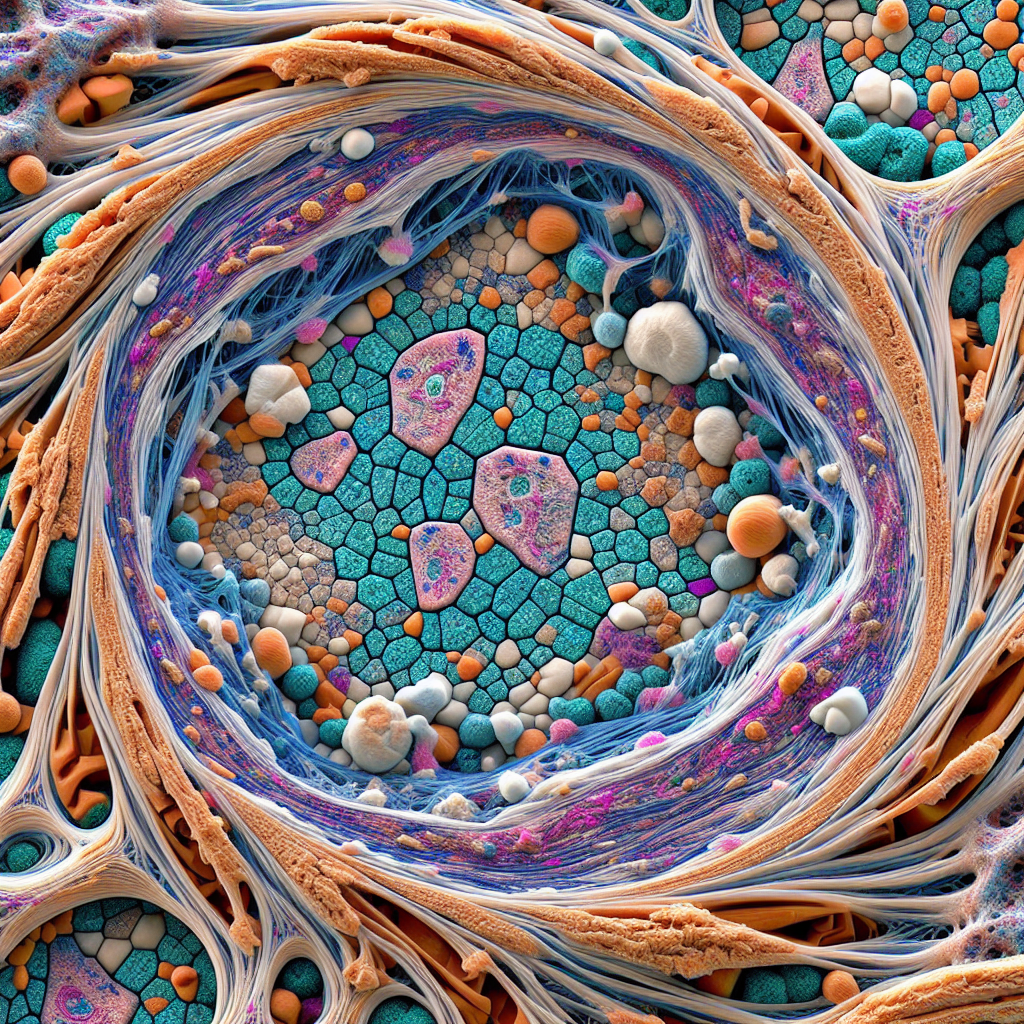Protein is a vital component of every living cell. Its functions in the human body are diverse, from acting as building blocks for tissues to serving as enzymes that facilitate biochemical reactions. When it comes to bone health, protein plays an essential role not only in the development of bone mass but also in the repair and maintenance of bone strength.
Protein: The Building Block of Bones
Bones are dynamic tissues that constantly undergo remodeling, a process where old bone is replaced by new bone tissue. This remodeling ensures that bone retains its strength and functionality throughout an individual’s life. Protein contributes to this process in several ways.
Collagen, the most abundant protein in the body, forms a scaffold to which minerals such as calcium can attach, ultimately giving bones their strength and flexibility. This matrix is critical; without sufficient protein, bones can become brittle and more susceptible to fractures. It’s also worth noting that protein intake plays a role in calcium absorption and metabolism, both crucial for maintaining bone density.
The Synergy Between Protein and Other Nutrients
While protein is critical, it does not work in isolation. For optimal bone health, it is important to ensure a balanced intake of other nutrients. Vitamin K2, for instance, works alongside protein to support bone health by regulating calcium deposition in bones and teeth, preventing calcium from being deposited in the arteries and other soft tissues.
For more comprehensive information on maintaining healthy bones throughout your life, visit Bone Health.
Protein’s Role in Bone Repair
When a bone is injured, the body initiates a complex healing process that includes an inflammatory phase, a reparative phase, and a remodeling phase. Protein plays a significant role in each of these stages.
During the inflammatory phase, proteins in the form of various enzymes and growth factors help control the inflammation and initiate the healing process. In the reparative phase, protein provides the necessary components for forming the new collagen matrix of bone tissue. Lastly, in the remodeling phase, protein helps in the maturation and strengthening of the new bone.
The Importance of Adequate Protein Intake for Bone Repair
Adequate protein intake is essential for efficient bone repair. Studies have shown that low protein intake can slow down the healing process, while adequate or increased protein intake can enhance it. This is particularly important for individuals recovering from fractures or orthopedic surgery.
Furthermore, research suggests that specific amino acids found in protein, such as arginine and glutamine, may be particularly beneficial in bone healing. These amino acids serve as precursors for nitric oxide and other compounds that are vital for bone cell function and vascular health, which in turn supports the repair process.
For strategies that support bone repair, have a look at Strategies to Enhance Bone Healing after Injury.
Protein Intake Recommendations for Bone Health
The amount of protein needed for optimal bone health varies with age, sex, and overall health. Generally, adults are advised to consume 0.8 grams of protein per kilogram of body weight per day. However, some studies suggest that higher protein intake could be beneficial for bone health, especially in older adults.
It’s important to source protein from a variety of foods, including both animal and plant-based proteins. Diverse sources ensure a broader range of amino acids and other nutrients necessary for overall health.
Special Considerations for Protein and Bone Health
Certain populations need to pay particular attention to their protein intake for bone health. For example, menopausal women are at a higher risk for osteoporosis due to hormonal changes that affect bone density. A diet sufficient in protein, coupled with other lifestyle factors, can help mitigate these risks. Delve into Bone Health in Menopausal Women: Risks and Solutions for more details.
Additionally, individuals with lactose intolerance often avoid dairy, a common source of protein and calcium. They need to find alternative sources to ensure they meet their nutritional requirements for bone health.
External Resources for Further Reading
To deepen your understanding of how protein influences bone health, here are some highly specific resources:
- A study on the National Institutes of Health website discusses the synergistic effect of protein and calcium on bone health.
- The International Osteoporosis Foundation offers resources on how nutrition, including protein intake, impacts bone health.
- Research on the Journal of Bone and Mineral Research provides insights into the molecular mechanisms by which protein affects bone strength.
- The American Society for Nutrition provides comprehensive resources and research findings on nutrition’s role in bone health.
Ensuring a diet that is rich in protein along with other essential nutrients is key to maintaining strong bones and facilitating their repair when necessary. By understanding the role of protein in bone health, individuals can make informed decisions about their diet and lifestyle to support their skeletal system.



